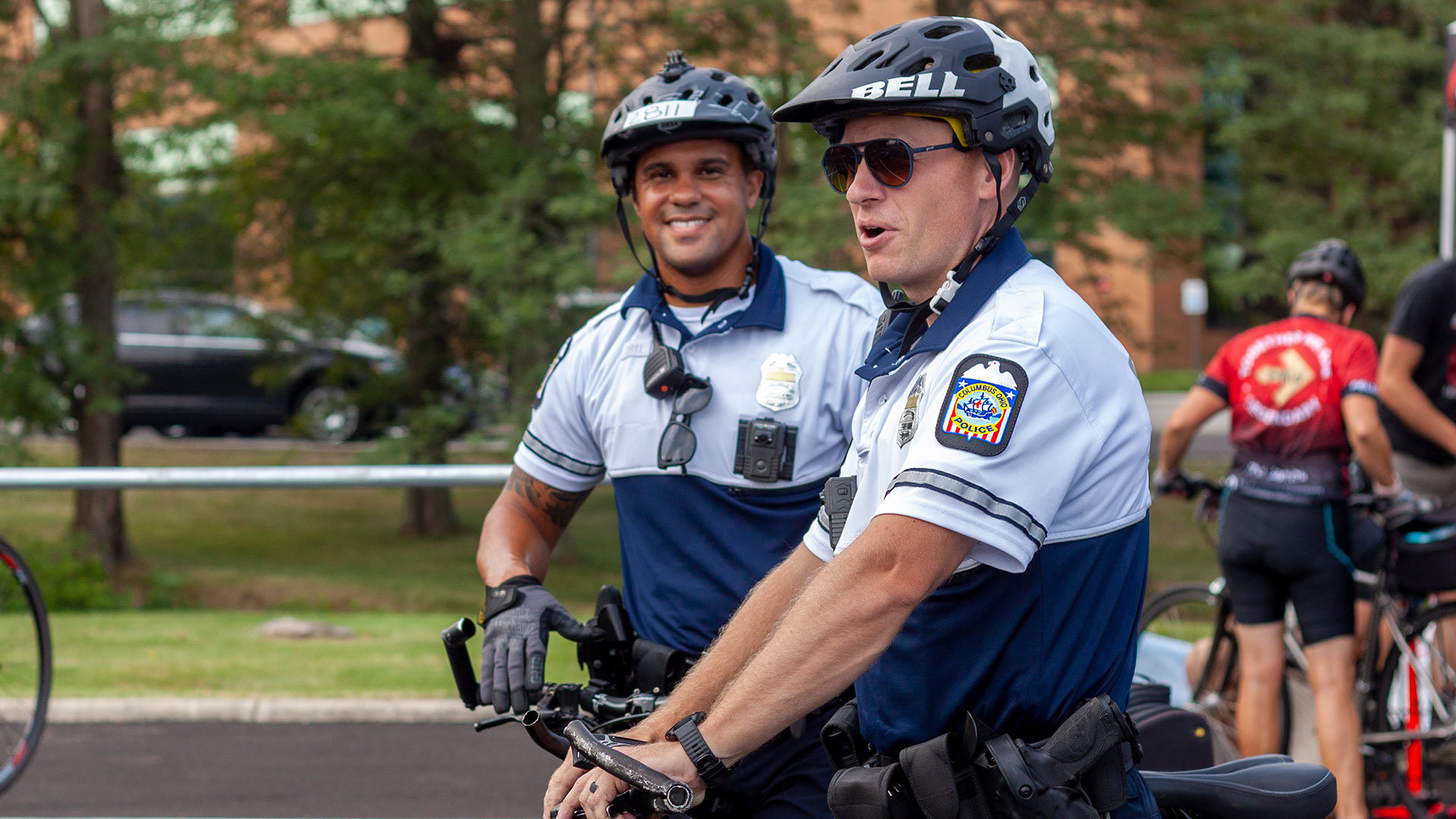[ad_1]

The Columbus City Council has recently allocated over $90,000 to the Columbus Police Dialogue Team, bidding to enhance community–police relations and refine crowd management strategies.
The initiative, known as Enable Columbus, aims to revolutionize the dynamics between law enforcement and the community during large-scale events and protests.
The core focus of Enable Columbus, officials and experts say, lies in fostering meaningful dialogues between the Columbus Police and diverse community groups.
Professor Clifford Stott, a renowned crowd psychology expert from the United Kingdom and a researcher at Keele University, contributed to the program.
Stott discussed the significance of building trust and confidence within the community, stressing that effective crowd management isn’t solely about enforcement but rather about facilitating citizens’ First Amendment rights and establishing legitimacy in police actions.
“Part of the solution that we help police organizations to develop is how to engage into crowds, how to build relationships with people in crowds,” Professor Stott stated. “And that’s not about enforcement. First off, it’s about trust and confidence. It’s about ensuring that the police force is working to facilitate those rights and build the view in the crowd that the actions of the police are legitimate.”
According to city officials, Enable Columbus aims to substantiate the effectiveness of conversation-based crowd management strategies through comprehensive research.
Phase one of the project is underway, focusing on gathering evidence supporting the notion that dialogue-based approaches uphold citizens’ constitutional rights while effectively managing crowds.
Professor Stott is optimistic about completing this phase by the end of the year, with plans to disseminate the findings to other law enforcement agencies in phase two.
Commander Duane Mabry talked of the pivotal role of the dialogue team in diffusing tensions and preventing escalations during protests and events.
“Our job is to be neutral and engage with everybody,” Mabry told The Columbus Dispatch. “Time, place and manner are what we’re allowed to have a say in, based on the Constitution. We don’t have a say on message.”
The Columbus Police Dialogue Team, comprising over 50 voluntary members, is hailed as a pioneering unit in Ohio and one of the few in the country.
These officers, trained in de-escalation techniques and constitutional law pertaining to protests, have attended more than 100 events annually with the objective of fostering constructive dialogues and building trust within the community.
Despite initial skepticism from some within the police force, the dialogue team’s approach, guided by insights from European crowd management practices, has garnered recognition and interest from law enforcement agencies nationwide.
Sergeant Steven Dyer, a key member of the team, stressed the importance of honest intent and community engagement in their endeavors.
“We’re not always going to be successful,” acknowledged Dyer. “We’re going to make mistakes, but we’re trying really hard.”
The community’s response to the dialogue team has been mixed, with some expressing support for their efforts in promoting peaceful discourse, while others remain cautious.
Reverend Willis Johnson, leader of Living Tree Church and a community activist, commended the team’s commitment to community engagement but called for the need for continuous improvement.
“While this might have emerged from or resulted from the responsibility of seeing how we do some things differently and responding to a reprimand or challenge, the spirit of this and continual practice has outlasted that initial, I think, reason or catalyst for it coming to bear. Now they are doing it because they want to,” Johnson remarked.
Lieutenant Kiera Husband, who works with police recruits, said the emphasis on communication community engagement reflects an evolving discourse within the force.
“We have all these extra tools on our belts because dialogue doesn’t always work, but your mouth is the strongest tool you will ever have,” Husband said.
[ad_2]




